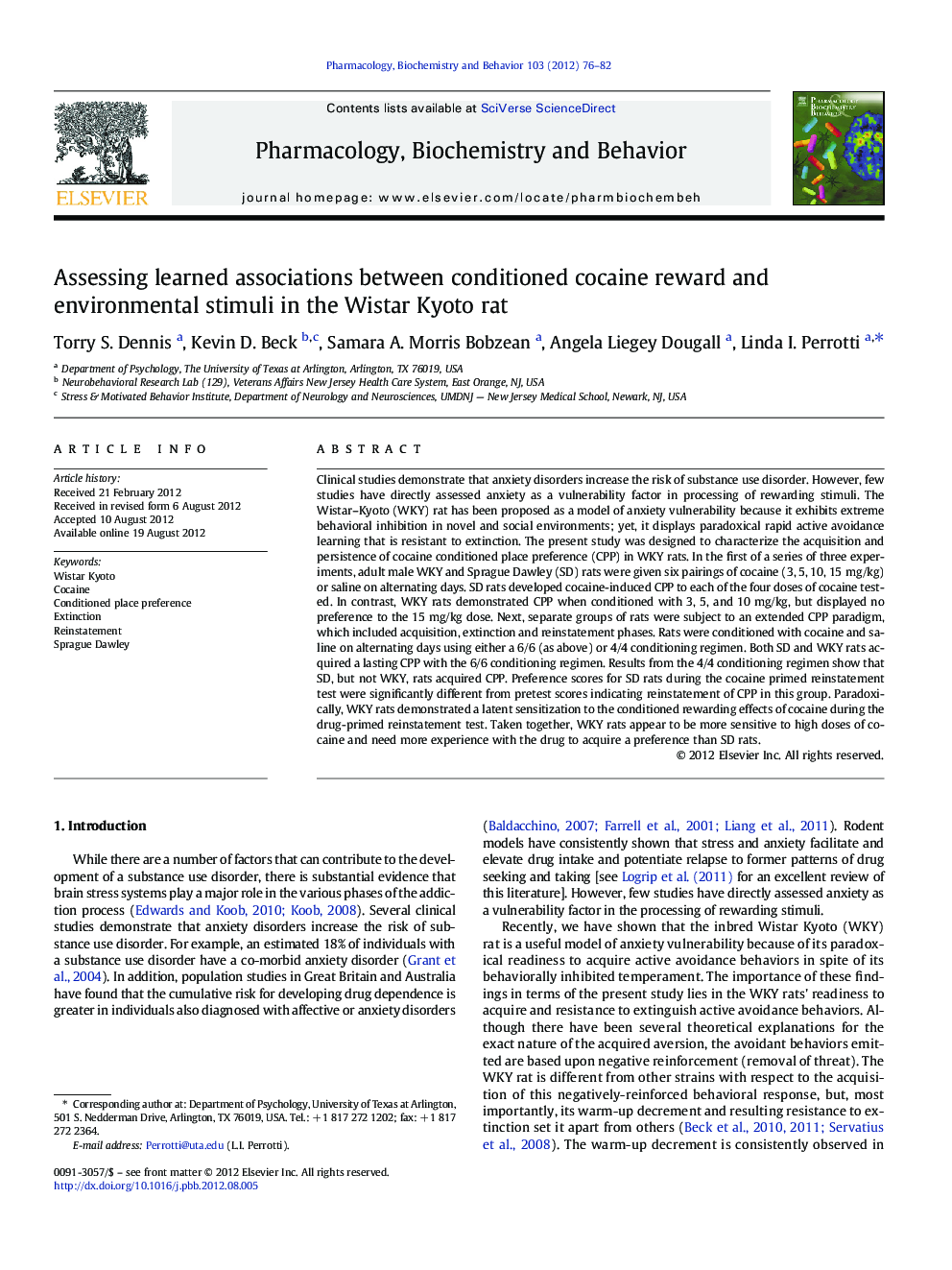| کد مقاله | کد نشریه | سال انتشار | مقاله انگلیسی | نسخه تمام متن |
|---|---|---|---|---|
| 2013074 | 1067084 | 2012 | 7 صفحه PDF | دانلود رایگان |

Clinical studies demonstrate that anxiety disorders increase the risk of substance use disorder. However, few studies have directly assessed anxiety as a vulnerability factor in processing of rewarding stimuli. The Wistar–Kyoto (WKY) rat has been proposed as a model of anxiety vulnerability because it exhibits extreme behavioral inhibition in novel and social environments; yet, it displays paradoxical rapid active avoidance learning that is resistant to extinction. The present study was designed to characterize the acquisition and persistence of cocaine conditioned place preference (CPP) in WKY rats. In the first of a series of three experiments, adult male WKY and Sprague Dawley (SD) rats were given six pairings of cocaine (3, 5, 10, 15 mg/kg) or saline on alternating days. SD rats developed cocaine-induced CPP to each of the four doses of cocaine tested. In contrast, WKY rats demonstrated CPP when conditioned with 3, 5, and 10 mg/kg, but displayed no preference to the 15 mg/kg dose. Next, separate groups of rats were subject to an extended CPP paradigm, which included acquisition, extinction and reinstatement phases. Rats were conditioned with cocaine and saline on alternating days using either a 6/6 (as above) or 4/4 conditioning regimen. Both SD and WKY rats acquired a lasting CPP with the 6/6 conditioning regimen. Results from the 4/4 conditioning regimen show that SD, but not WKY, rats acquired CPP. Preference scores for SD rats during the cocaine primed reinstatement test were significantly different from pretest scores indicating reinstatement of CPP in this group. Paradoxically, WKY rats demonstrated a latent sensitization to the conditioned rewarding effects of cocaine during the drug-primed reinstatement test. Taken together, WKY rats appear to be more sensitive to high doses of cocaine and need more experience with the drug to acquire a preference than SD rats.
► We examined conditioned cocaine reward in the anxiety vulnerable WKY rat.
► WKY rats are more sensitive to high doses of cocaine than SD rats.
► WKY rats need more experience with the drug environment to demonstrate CPP.
► Initial presence of CPP does not necessarily predict reinstatement.
► The number of acquisition trials affects the hedonic value of cocaine in the WKY rats.
Journal: Pharmacology Biochemistry and Behavior - Volume 103, Issue 1, November 2012, Pages 76–82